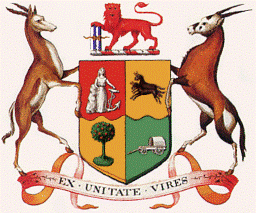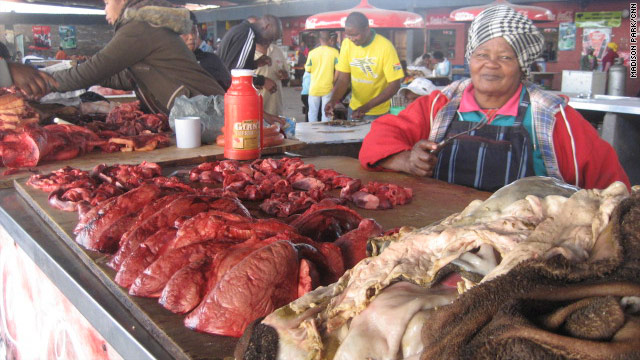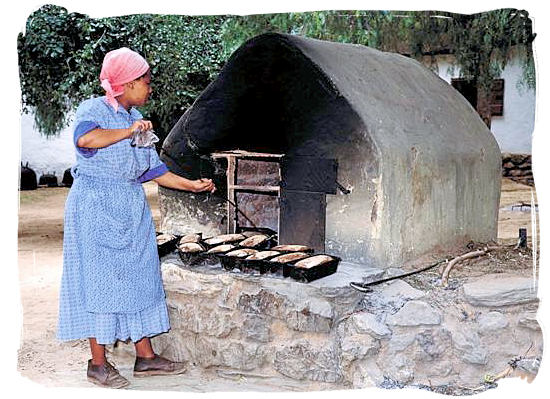SOUTH AFRICA MCC


http://www.sanctr.gov.za/YourRights/TheMedicinesControlCouncil/tabid/176/Default.aspx
MEDICINE APPROVAL PROCESS IN SOUTH AFRICA
Once the application for registration has been compiled, a specified number of copies together with the applicable application fee, and a sample of the product appropriately labeled, must be submitted to the MCC Secretariat in Pretoria with the required fee. MCC will not accept partial submissions with further data to follow at a later stage.
The MCC evaluates the submission and will usually respond with questions or requests for further data. Once this is submitted and accepted, registration of the product will be “approved” or “not approved”. The time taken for evaluation varies depending on the workload but should be approx. 24 months for innovative products and 12 months for generic medicines, although backlogs have frequently developed in practice so that approval can take much longer. During this time there can be several interchanges between the MCC and the applicant company.
The time taken for approval of variations to registered product dossiers depends on the nature of the changes required but would usually take from 2 – 4 months for pharmaceutical changes and 6 – 12 months for changes involving clinical data. Again backlogs frequently develop in practice so approval can take much longer.
DISTRIBUTION CHANNEL OF MEDICINE
There are two main channels of medicine supply and distribution in South Africa.
1. The Public Sector: This sector is funded by the State [at different levels]. It supplies approx. 70 – 80 % of all medicines by volume but this only represents approx. 30 – 40 % by value. These medicines are obtained from the private sector on a tender basis. Many of the medicines supplied are generics.
2. The Private Sector: This sector is funded by medical schemes, medical insurers or other private sector health care funders. It supplies approx. 20 – 30 % of all medicines by volume but this represents approx. 60 – 70 % by value. Some of these organisations have introduced a Maximum Medical Aid Price [MMAP] for certain medicines. i.e., they will reimburse the patient at the cost of a generic medicine regardless of whether the patient received the original medicine or a generic substitute. Alternatively the patient may be required to make a co-payment of up to 25 % if they wish to receive the originally prescribed medicine. Recently medical schemes have also encouraged the practice of therapeutic substitution provided the medical practitioner agrees.
PRICING AND REIMBURSEMENT
The Pricing Committee of the Department of Health is the statutory body responsible for monitoring and controlling the price of medicines and charges throughout the supply chain e.g., logistics and dispensing fees.
REGISTRATION AND LICENSING REQUIREMENTS FOR THE MANUFACTURE AND SALE OF PHARMACEUTICALS
All medicines sold in South Africa must be registered by the Medicines Control Council, [MCC], the Medicines Regulatory Authority set up under the Medicines and Related Substances Control Act [Act 101 of 1965] as amended, to control all aspects of the manufacture and sale of medicines.
REQUIREMENTS
- The Company must be registered under the Company’s Act and then with the South African Pharmacy Council, and must have an operating license from the Medicines Control Council.
- A “responsible pharmacist” must be appointed as the person legally responsible for compliance with all laws and regulations, codes of good practice and ethical obligations.
- An application for registration must be compiled in a specified format by a pharmaceutical company registered and operating in South Africa
RESPONSIBILITY- For compliance with all laws and regulations ,codes of good practice & ethical obligations.
- The applicant company must compile an Applicant Master File with details about the company, its physical address in South Africa, its organogram including the skills and experience of the staff responsible for the production, testing, storage and distribution of its medicinal products.
- The product dossier compiled by the applicant company must be submitted to and approved by the MCC and is regarded as a legal contract. The Certificate of Registration of a medicine confirms this and is the license to sell the medicine. Any amendment made by the company after registration must be approved by the MCC.
Guidelines for both the registration and the control of medicines by MCC-This includes:
- The claims made for the medicine with regard to the indications for its use. These must appear on the package insert which must accompany each pack of a medicine.
- Registration approval is based on these claims after MCC evaluation of the scientific and clinical data provided to support the claims. In addition, a Patient Information Leaflet to be made available to the patient taking the medicine, must also be compiled by the company and approved by the MCC.
- Specifications and quality control procedures for all raw materials and packing materials, as well as the final dosage form in its final sales pack. These must be described in detail with exact specifications and control procedures described.
- Manufacturing processes and in-process quality controls.
- A validation program to ensure that all components and processes produce products of a consistent quality every time. This includes a stability testing program top ensure that the product retains all its quality parameters for the full shelf life of the product.
- A Site Master File with specified details of the actual factory where the medicine is made.
- For innovative medicines, details of the results of all pharmaceutical [laboratory], animal and human testing must be supplied. These include data generated throughout the product development from the initial tests done to determine the absorption, distribution, metabolism and excretion of the drug in animals and healthy human volunteers [pharmacodynamic data] to the results obtained in clinical trials in sick patients.
- The studies may be done in South Africa or in other countries but the data must be evaluated and approved by the MCC for registration of the medicine to be granted.
- For generic medicines the applicant must provide proof that the product has a comparable therapeutic effect to that of the originator’s product. This can be done by conducting comparative clinical trials, or by providing proof of bioequivalence or in some cases by laboratory testing.
- All advertising must be based on the approved claims for the medicine i.e., those which appear on the approved package insert. Advertising does not require prior approval by the MCC but the MCC Inspectorate does deal with any infringement as a contravention of the regulations.
- Generally the industry controls infringement of advertising and promotional practices by self-regulation e.g. PIASA has a Code of Practice for the Marketing of Medicines to healthcare professionals. This is aligned with the IFPMA Code of Practice and the Perverse Incentives Policy applicable to South African Healthcare professionals.
12. The manufacturing facility where a medicine is made, tested and packed is subject to inspections and approval by the MCC which may also test specific products and audit the product dossiers to ensure that these have been kept updated.
Source- Pharmaceutical Industry Association of South Africa(PIASA)

read more
http://www.kznhealth.gov.za/research/mccinfo.pdf
http://www.kznhealth.gov.za/research/mccinfo.pdf GREAT ARTICLE

|
||
|
The Medicines Control Council (MCC) is a statutory body that regulates the performance of clinical trials and registration of medicines and medical devices for use in specific diseases. The MCC is responsible to ensure that all clinical trials of both non-registered medicines and new indications of registered medicines comply with the necessary requirements for safety, quality and efficacy. Applications for clinical trials and for registration of medicines and medical devices are reviewed by an MCC expert committee, which considers amongst other issues the scientific, medical and ethical issues of the applications. Reports on the progress of the study are sent to the MCC on a regular basis. Proof of safety, quality and efficacy must be submitted when applying to the MCC for approval and registration of a medicine for use in South Africa. For more information on the MCC refer to http://www.mccza.com |
The South African National Clinical Trials Register provides the public with updated information on clinical trials on human participants being conducted in South Africa. The Register provides you with information on a trials purpose; who can participate, where the trial is located, and contact details.
The South African National Clinical Trials Register forms part of international calls for making trial information publicly available. The International Committee of Medical Journal Editors, which includes peer reviewed journals from around the world, recently made a statement that from 1 July 2005 no trials will be considered for publication unless they are included on a research register. The World Health Organisation has begun the push for clinical trial registration with the initiation of a Clinical Trials Register platform. Similarly, the global pharmaceutical industry has recently released plans to make trial data more publicly available.
The benefits of a central publicly accessible clinical trial register are numerous. They include:
- Serves to promote collaboration among researchers, the private sector and the community through the sharing of research information;
- Assists people to identify clinical trials they can participate in;
- Decreases publication bias; reduce duplication of research efforts;
- Promotes best use of limited research resources; and
- Contributes to global efforts to reduce / eliminate disease.
The SA National Clinical Trials Register is an important tool for monitoring and managing new clinical trials. The questions being investigated, findings of studies as well as mapping of locations, funders, funding, research institutions and progress towards developing new capacity in the area are some of the issues that the register can assist the research community in addressing.
In November 2005 the Department of Health issued a notice that as from the 1st December 2005 all new clinical trials to be conducted in the country must be registered in the South African National Clinical Trials Register. The notice also explained that trials that started recruiting as of 1st July 2005 must also be registered.
You may want more information on clinical trials before seeing what trials are being done in South Africa. If so, refer to one of the relevant links below. If you are an investigator or clinical trial sponsor wishing to register a trial, for more information you should refer to sections under the heading, investigator information. See links below. Also refer to the NHREC Electronic Application Site (www.ethicsapp.co.za) for details on applying for an account and capturing trial information.
Resources:
- What is a clinical trial?
- Phases / steps followed in conducting clinical trials
- Adverse Events
- Possible advantages and disadvantages of participating in a clinical trial
- Some terms commonly used in clinical trials
- Other Reading / Resources
Your Rights:
- Your constitutional rights
- What is informed consent?
- Necessary information for informed consent
- The Medicines Control Council
- Research Ethics Committees
Investigator Information:
- Who is the register for?
- Registration and regulation
- What is to be registered
- How to register
- Updating the register
- Sensitive Information/confidentiality
SA Clinical Trials:
Click here for information on how to contact THEM.
The Future of Medical Product Approval in South Africa
In response to the thalidomide tragedy of the early 1960s, the South African government wanted to ensure that only safe and effective drugs were used in the treatment of patients in their country. Toward that end South Africa passed the Medicines and Related Products Act 101 of 1965. The Act created a new branch of the Health Ministry, the Medicines Control Council (or MCC). The MCC was tasked with approving the registration of safe and effective medicines in South Africa, as well as approving medicines that are unregistered under certain circumstances. The MCC is also given the power to authorize the sale of unregistered medicine for special purpose (see Section 21 of Act 101 of 1965). Currently the Health Minister has the final say in registration of new products for use in South Africa, but receives advice from expert reviewers who have the appropriate experience and are not employees of the pharmaceutical industry. The MCC has carried out the duty of reviewing and approving drugs since its inception.
However, there have been some significant setbacks for the agency. Namely, the reviewers who advise the Health Minister on whether or not a product is safe and effective are not full time employees of the South African government. As a result the councils that review clinical trial and drug registration applications only meet every few months. This results in clinical trial and drug registration approval times that are longer than in places like the EU and the US. The longer approval times mean pharmaceutical companies have somewhat diminished incentive to seek approval in South Africa.
In recognition of this issue, the South African Health Minister submitted new regulatory legislation in 2008. The Parliament of South Africa passed the legislation. This legislation would create a new regulatory agency, the South African Health Products Regulatory Agency or SAHPRA. SAHPRA, when created, will have a larger domain of regulation than the MCC. SAHPRA will be responsible for regulation of drugs, biologics, medical devices, in vitro diagnostics, complementary medicinal products, food, and cosmetics. The agency will be funded, in part, by fees on applications similar to the PDUFA and MDUFA fees leveraged by the US FDA, allowing for expansion of staff as appropriate for the current workload. SAHPRA will additionally be able to create mutual recognition agreements with other regulatory agencies, such as the FDA, to reduce the registration approval times for products approved by those agencies.
In its initial incarnation SAHPRA, like the MCC, was going to be under the direction of the Health Minister, who would appoint a CEO to run the agency with the Minister retaining the ultimate say in the approval of medical products. In later drafts of the legislation, however, the agency is more independent with stronger self-governance. Now the CEO will preside over a small technically proficient board of directors that will have more power in the approval process. In addition, two regulatory councils have been created to have oversight over specific products. One council will review medicines and the other council will review medical devices and in vitro diagnostics, a power not delegated to the MCC under previous South African law. Below the councils will be technical committees that help review applications. The CEO, board of directors, and technical committees will be full time, dedicated employees of the government of South Africa. All of these innovations are designed to reduce the time medicinal products spend in review and get safe and effective drugs and medical devices approved for use in South Africa.
The impact of SAHPRA will likely be felt very keenly in the medical devices community as, up until the creation of SAHPRA, devices will not have had regulatory oversight in South Africa. The legislation for SAHPRA creates a number of device provisions, including establishment licensing, device classification, and labeling regulations. These are but a few of the many regulatory changes that will be seen in the South African medical device field. Overall, the law is designed to ensure, again, that any medical devices prescribed and used in South Africa will have had appropriate review of their safety and effectiveness. While it creates additional burden on medical device manufacturers, the benefit to the South African public is clear.
While the legislation was first approved by the South African Parliament in 2008 and was promulgated and signed into law by the President in 2009, SAHPRA still has not come into existence. Many modifications have been made to the legislation surrounding the creation of the agency and it seems there may be more changes in the works. It had been hoped that by April of 2013 SAHPRA would be founded and operational, but modifications to the law have led to delays in the functional adoption of the legislation. Many of the changes to the legislation were brought about after careful consideration of the agency, its purpose, and appropriate regulatory powers. When it does finally come into existence, SAHPRA promises to make South Africa much more attractive for clinical trials and for those considering seeking drug registration approval. This attractiveness, in turn, should lead to more and better drugs and medical devices becoming available to the South African population.
Related posts:
Take a south africa tour…FREE
Take a south africa tour…FREE
Take a south africa tour…FREE
http://www.africansky.com/south-africa-travel.html
-
South Africa – Wikipedia, the free encyclopedia
en.wikipedia.org/wiki/South_AfricaSouth Africa, officially the Republic of South Africa (RSA), is a country bounded on the south by 2,798 kilometers of coastline of Southern Africa stretching along …


DR NELSON MANDELA

South Africa Johannesburg
 .
.







 zulu women
zulu women
SOUTH AFRICAN CUISINE










South Africa Travel
When traveling in South Africa, visitors will encounter many different landscapes across the country, from sub-tropical rain forests and semi-desert stretches to snow-capped mountains, sugary beaches and grassland game reserves. Cape Town, the Cape winelands, the Kruger National Park, Sabi Sand, Timbavati and the Garden Route are the most popular South Africa travel destinations.
African Sky offers pre-planned and tailor-made tours to all these premium tourism areas. With an experienced arsenal of guides and a well-traveled office team, we are in a position to provide expert advice and include a hand-picked range of world-class accommodations in our South Africa travel packages. This world-in-one-country offers an incomparable African getaway.
Top South African Travel Destinations
South Africa’s ‘mother city’ of Cape Town is one of the country’s most popular travel destinations. African Sky offers in-depth tours of this vibrant city that sprawls its rich history and culture across the most south-western tip of the African continent. From fine dining and shopping to heart-stopping adventures, a tour in Cape Town will provide an activity to suit every visitor to this exciting South Africa travel destination.
The Kruger National Park is home to almost 150 different species of mammals, more than 500 species of birds, over 100 species of reptiles and 33 species of amphibians. This staggering diversity sets the park apart from other game reserves on the continent. South Africa travel to Kruger offers a unique wilderness arena that yields spectacular sightings. A range of accommodation options are available, from basic and comfortable to opulent and fully inclusive.
The Sabi Sand Private Game Reserve offers a plush assortment of luxury private lodges that provide some of the best safari experiences available on the continent. The reserve shares an unfenced border with the Kruger National Park, which means that Kruger’s wealth of wildlife may pass through these territories unhindered. These factors combined make the Sabi Sand one of the finest South Africa travel destinations.
The Cape winelands region is a South African travel destination known for its quaint, historic towns, delectable medley of gourmet eateries and, naturally, its leagues of fine wine estates. With so many delicious bouquets to choose from, no visitor will leave without enamored taste buds. The area’s grand mountain scenery and Mediterranean climate enhance an already captivating destination.
South Africa’s Garden Route region is a lush wonderland of indigenous coastal forests and fine swimming beaches. This magical area offers a wealth of activities, from exploring the waters of the Indian Ocean or stretching out on the welcoming shores to rounds of golf on championship courses and exhilarating wildlife encounters. The Garden Route is a particularly popular South Africa travel destination among families who wish to enjoy a beach holiday combined with some of the country’s finest attractions.
Timbavati Private Game Reserve
Timbavati Private Game Reserve forms part of the Greater Kruger National Park, extending the park’s mopani belt further west. Timbavati is particularly famous for the rare occurrence of white lions within the reserve. Along with lions, the reserve is also home to the rest of Africa’s Big Five, and the myriad species that inhabit Kruger. Timbavati hosts a collection of highly regarded private lodges that feature in many of our South Africa travel itineraries.
Shamwari Private Game Reserve is located in South Africa’s Eastern Cape province – a conveniently malaria-free region. Shamwari is thus ideal for families traveling with small children and offers an exciting and educational Kids on Safari program. For traveling couples, Shamwari’s luxurious accommodations and idyllic scenery will certainly contribute to a romantic and unforgettable South African safari.
Phinda Private Game Reserve offers an incredibly unique safari experience. At Phinda, the Big Five roams over seven different ecosystems, which makes for remarkable game viewing. Phinda’s accommodations are also indulgently luxurious, with lodges located in magical settings such as an ancient sand forest or atop rugged cliffs with sweeping views of the grasslands areas.
African Sky offers luxury train journeys on two of the most celebrated trains on the continent; the Blue Train, which travels between Pretoria and Cape Town, and Rovos Rail, which includes journeys to Cape Town and the Victoria Falls. These trains offer only the finest in gourmet fare and provide spacious cabins rich with elegant decor and all the luxury trimmings.
Sun City it the largest entertainment resort in South Africa. Boasting a chiming chorus of casinos, an extensive waterpark known as the Valley of the Waves and a host of hotels at various levels of luxury, Sun City is popular amongst local and international travelers alike. The nearby Pilanesberg Game Reserve offers additional appeal, as the game park is home to the Big Five and many other species of mammal.
South Africa’s Whale Route is also known as the coastal Overberg, and it is recognized as one of the finest destinations in the world to enjoy land-based whale watching from. Between June and September, hundreds of southern right whales journey up from the icy waters of the Southern Ocean to give birth in the coves just off the coast in Walker Bay near Hermanus.

DR ANTHONY MELVIN CRASTO Ph.D
web link
http://anthonycrasto.jimdo.com/
blogs are


![]()
 DRUG APPROVALS BY DR ANTHONY MELVIN CRASTO …..FOR BLOG HOME CLICK HERE
DRUG APPROVALS BY DR ANTHONY MELVIN CRASTO …..FOR BLOG HOME CLICK HERE
Join me on Facebook FACEBOOK
 amcrasto@gmail.com
amcrasto@gmail.com
//////
49,214 total views, 1 views today


























